When Mary Hilda Cavanagh left school aged 17 she wanted to become to nun, and so she joined the Presentation Order in Thurles. After two years, she left. Although she says it was not a bad experience and important lessons were learned there, she struggled with the silence.
“Coming out of the convent after two years, I had nothing to say for myself,” recalls Mary Hilda. “Well, I had a lot to say, but I was a terribly shy person.”
It is interesting that in just five years Mary Hilda would go on to pursue a career where standing up to speak in front of people (some would say quite forcefully) is the mainstay – politics.
People no longer write letters or call to the house quite as much, instead they phone
With 45 years’ service to Kilkenny County Council under her belt, Mary Hilda is the longest-serving, continuously elected councillor in Ireland, having first been elected in 1974 at the age of 23. Since, she has been re-elected to the council nine times.
In that time, she has seen many changes in how the electorate communicates with their councillors. People no longer write letters or call to the house quite as much, instead they phone.
When Irish Country Living visits Mary Hilda and her husband Eddie’s home and farm in Galmoy, Co Kilkenny, the phone rings intermittently throughout the visit.
What hasn’t changed very much in this 45-year period is the number of woman on Kilkenny County Council. When she was first elected there were two sitting female councillors, now there are four.
Still, Mary Hilda is not downtrodden in anyway about her political career. Speaking with her, it is clear she has always and still does enjoy being a councillor.
Political aspirations
Mary Hilda grew up on a mixed farm in Crosspatrick, three miles from where she and Eddie now run a beef farm with their son. They have three grown-up children; Sarah, Anne Marie and Brian. Where they live is Co Kilkenny but very near both the Laois and Tipperary borders.
As a young woman, Mary Hilda came to politics of her own accord. Her great grandfather was involved in local politics in the late 1800s before county councils were officially established.
One day I sat down beside someone and I just said that I was from the country and I was very lonely
Through this connection she was always politically aware, but had no direct links to sitting politicians.
After leaving the convent Mary Hilda went to University College Dublin (UCD) to study history, economics and French, with a view to going on to become a teacher. It was in UCD she first got involved in politics.
“One day I sat down beside someone and I just said that I was from the country and I was very lonely. She said, ‘I’m a member of Fine Gael, why don’t you come to a meeting? We have one tonight’. I did and I stayed in the branch then for the rest of my time in college,” she remembers.
I thought I would be Minister for Education sometime
During this time Garret FitzGerald was one of Mary Hilda’s lecturers and she did some canvassing for him in his Dublin constituency.
“I got a taste for it, we used to go into the Dáil when we were sending out notices for meetings and I thought, ‘This would be a great job for me’. I thought I would be Minister for Education sometime. You know the way you think, but anyway,” she reflects.
“I did the Dip in Maynooth after UCD. There was a local election that June in 1974 and I stood because I thought you would need to stand for a couple of times to get elected, but low and behold I got in.”
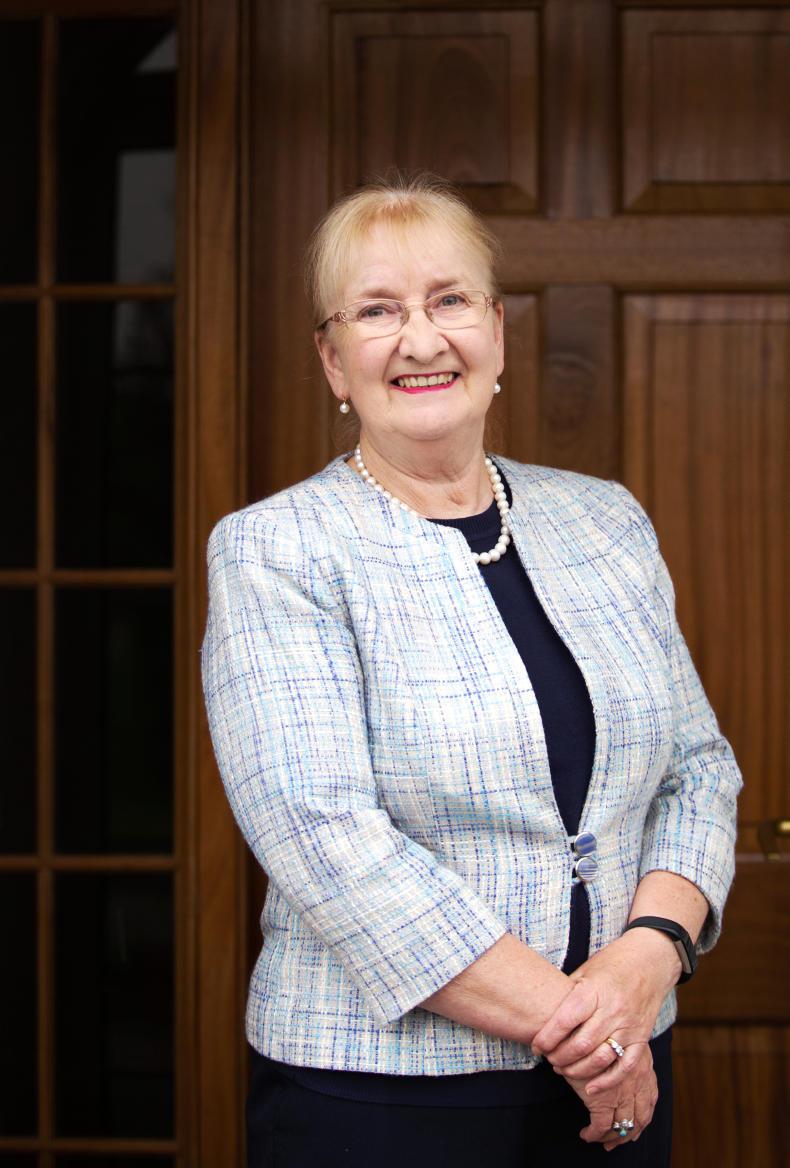
Mary Hilda Cavanagh. \ Claire-Jeanne Nash
As well as being a councillor, for her first 14 years in office Mary Hilda taught in Ballingarry, Co Tipperary. From her first day on Kilkenny County Council, Mary Hilda says she thought herself equal to her fellow councillors, and that has never wavered over the years.
Straight away she got stuck into committees on her two main interests; education and agriculture.
“I wanted to go on the Vocational Education Committee, because I was interested in education and I wanted to go on the County Committee of Agriculture because I was interested in agriculture being a farmer and they allowed me to go on both.
“I remember some of councillors were less than pleased when I went on the County Committee of Agriculture. That was a committee that linked up the officials, the farmers, the farm organisations and the councillors interested in agriculture. It was a great committee, but it got abolished eventually.”
At the time her constituency was referred to as the Ballyragget Electoral Area, now the Castlecomer Electoral Area. Although it has expanded over time, Mary Hilda’s election strategy is still to focus on her own corner of northwest Kilkenny.
She only canvasses one-third of the constituency, the vast majority of which she does on her own. In four months of canvassing leading up to this year’s local election, she had someone accompany her on just four separate days.
Breaking barriers
For Mary Hilda, there isn’t too much difference in being a male or female councillor that hasn’t family commitments. It is when it comes to being a mother that the divergence is seen. Lack of maternity leave, Mary Hilda says, is the biggest issue.
“There should be maternity leave of course. My husband minded the children in the car in carpark and I would sneak out to breastfeed. It is just untellable, that was just six weeks after the baby was born, but there were no facilities, no allowance.
“I was at a conference when I went into labour with one of my children. Imagine, I went into labour at the conference. My daughter is now a lecturer, so it must have rubbed off on her.”
It is very, very difficult for young mothers to cope with the demands of the county council
Many female councillors with children also need someone to help with looking after them, Mary Hilda adds. It was difficult for her to juggle her children, teaching and the council. Mary Hilda is incredibly grateful to her mother-in-law Madge. Whom she began to appreciate even more when she became a grandmother herself.
“It is very, very difficult for young mothers to cope with the demands of the county council, because you have meetings at night, you have meetings in the evenings and if you are doing a job as well you are never home,” she explains.
“I was blessed here. Eddie’s mother, Madge, was here and she was basically a mother to my children. Since my grandchildren were born it makes her stand out as a saint in my eyes. I just wish she was around to tell her, but she knows.”
In politics, the best policy decision are made when men and women work together, Mary Hilda believes. Cooperation is key and over the years many male colleagues have been very supportive of her, but she also recognises there are barriers for women, some obvious, others less so.
I’ve often seen a man make an argument and be commended for his leadership, where as a woman making the same argument is accused of being a battle-axe
“Women are judged more harshly and subjected to more criticism; their dress, their tone of voice, their audacity to want their voice heard. When I was elected first I wore a mini-skirt when canvassing, so in the next election I canvassed in trousers and topped the poll.
“I’ve often seen a man make an argument and be commended for his leadership, where as a woman making the same argument is accused of being a battle-axe; a description that has often been put to me over the year when I’ve stood up for what I believe in. These days, I’m a bit better at shaking off the everyday sexism.”
That said, what advice would she give a woman thinking of standing for local election?
“Be ambitious for yourself and go for it.”
When Mary Hilda Cavanagh left school aged 17 she wanted to become to nun, and so she joined the Presentation Order in Thurles. After two years, she left. Although she says it was not a bad experience and important lessons were learned there, she struggled with the silence.
“Coming out of the convent after two years, I had nothing to say for myself,” recalls Mary Hilda. “Well, I had a lot to say, but I was a terribly shy person.”
It is interesting that in just five years Mary Hilda would go on to pursue a career where standing up to speak in front of people (some would say quite forcefully) is the mainstay – politics.
People no longer write letters or call to the house quite as much, instead they phone
With 45 years’ service to Kilkenny County Council under her belt, Mary Hilda is the longest-serving, continuously elected councillor in Ireland, having first been elected in 1974 at the age of 23. Since, she has been re-elected to the council nine times.
In that time, she has seen many changes in how the electorate communicates with their councillors. People no longer write letters or call to the house quite as much, instead they phone.
When Irish Country Living visits Mary Hilda and her husband Eddie’s home and farm in Galmoy, Co Kilkenny, the phone rings intermittently throughout the visit.
What hasn’t changed very much in this 45-year period is the number of woman on Kilkenny County Council. When she was first elected there were two sitting female councillors, now there are four.
Still, Mary Hilda is not downtrodden in anyway about her political career. Speaking with her, it is clear she has always and still does enjoy being a councillor.
Political aspirations
Mary Hilda grew up on a mixed farm in Crosspatrick, three miles from where she and Eddie now run a beef farm with their son. They have three grown-up children; Sarah, Anne Marie and Brian. Where they live is Co Kilkenny but very near both the Laois and Tipperary borders.
As a young woman, Mary Hilda came to politics of her own accord. Her great grandfather was involved in local politics in the late 1800s before county councils were officially established.
One day I sat down beside someone and I just said that I was from the country and I was very lonely
Through this connection she was always politically aware, but had no direct links to sitting politicians.
After leaving the convent Mary Hilda went to University College Dublin (UCD) to study history, economics and French, with a view to going on to become a teacher. It was in UCD she first got involved in politics.
“One day I sat down beside someone and I just said that I was from the country and I was very lonely. She said, ‘I’m a member of Fine Gael, why don’t you come to a meeting? We have one tonight’. I did and I stayed in the branch then for the rest of my time in college,” she remembers.
I thought I would be Minister for Education sometime
During this time Garret FitzGerald was one of Mary Hilda’s lecturers and she did some canvassing for him in his Dublin constituency.
“I got a taste for it, we used to go into the Dáil when we were sending out notices for meetings and I thought, ‘This would be a great job for me’. I thought I would be Minister for Education sometime. You know the way you think, but anyway,” she reflects.
“I did the Dip in Maynooth after UCD. There was a local election that June in 1974 and I stood because I thought you would need to stand for a couple of times to get elected, but low and behold I got in.”

Mary Hilda Cavanagh. \ Claire-Jeanne Nash
As well as being a councillor, for her first 14 years in office Mary Hilda taught in Ballingarry, Co Tipperary. From her first day on Kilkenny County Council, Mary Hilda says she thought herself equal to her fellow councillors, and that has never wavered over the years.
Straight away she got stuck into committees on her two main interests; education and agriculture.
“I wanted to go on the Vocational Education Committee, because I was interested in education and I wanted to go on the County Committee of Agriculture because I was interested in agriculture being a farmer and they allowed me to go on both.
“I remember some of councillors were less than pleased when I went on the County Committee of Agriculture. That was a committee that linked up the officials, the farmers, the farm organisations and the councillors interested in agriculture. It was a great committee, but it got abolished eventually.”
At the time her constituency was referred to as the Ballyragget Electoral Area, now the Castlecomer Electoral Area. Although it has expanded over time, Mary Hilda’s election strategy is still to focus on her own corner of northwest Kilkenny.
She only canvasses one-third of the constituency, the vast majority of which she does on her own. In four months of canvassing leading up to this year’s local election, she had someone accompany her on just four separate days.
Breaking barriers
For Mary Hilda, there isn’t too much difference in being a male or female councillor that hasn’t family commitments. It is when it comes to being a mother that the divergence is seen. Lack of maternity leave, Mary Hilda says, is the biggest issue.
“There should be maternity leave of course. My husband minded the children in the car in carpark and I would sneak out to breastfeed. It is just untellable, that was just six weeks after the baby was born, but there were no facilities, no allowance.
“I was at a conference when I went into labour with one of my children. Imagine, I went into labour at the conference. My daughter is now a lecturer, so it must have rubbed off on her.”
It is very, very difficult for young mothers to cope with the demands of the county council
Many female councillors with children also need someone to help with looking after them, Mary Hilda adds. It was difficult for her to juggle her children, teaching and the council. Mary Hilda is incredibly grateful to her mother-in-law Madge. Whom she began to appreciate even more when she became a grandmother herself.
“It is very, very difficult for young mothers to cope with the demands of the county council, because you have meetings at night, you have meetings in the evenings and if you are doing a job as well you are never home,” she explains.
“I was blessed here. Eddie’s mother, Madge, was here and she was basically a mother to my children. Since my grandchildren were born it makes her stand out as a saint in my eyes. I just wish she was around to tell her, but she knows.”
In politics, the best policy decision are made when men and women work together, Mary Hilda believes. Cooperation is key and over the years many male colleagues have been very supportive of her, but she also recognises there are barriers for women, some obvious, others less so.
I’ve often seen a man make an argument and be commended for his leadership, where as a woman making the same argument is accused of being a battle-axe
“Women are judged more harshly and subjected to more criticism; their dress, their tone of voice, their audacity to want their voice heard. When I was elected first I wore a mini-skirt when canvassing, so in the next election I canvassed in trousers and topped the poll.
“I’ve often seen a man make an argument and be commended for his leadership, where as a woman making the same argument is accused of being a battle-axe; a description that has often been put to me over the year when I’ve stood up for what I believe in. These days, I’m a bit better at shaking off the everyday sexism.”
That said, what advice would she give a woman thinking of standing for local election?
“Be ambitious for yourself and go for it.”




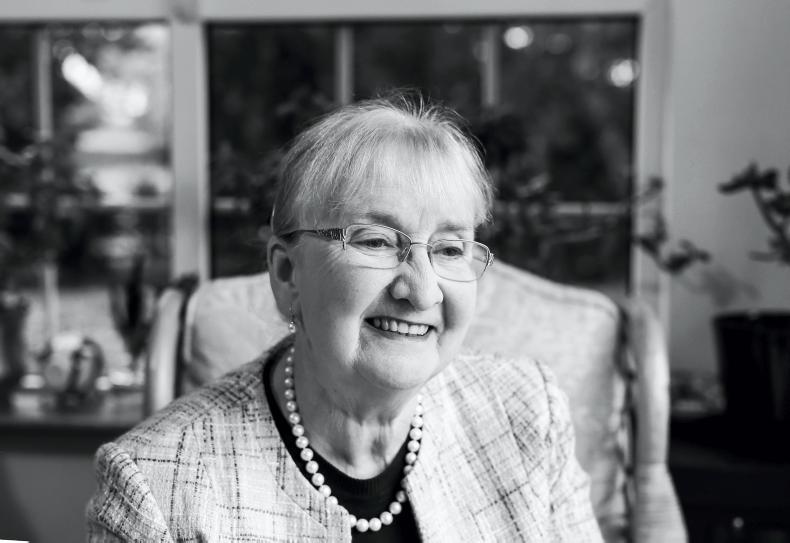

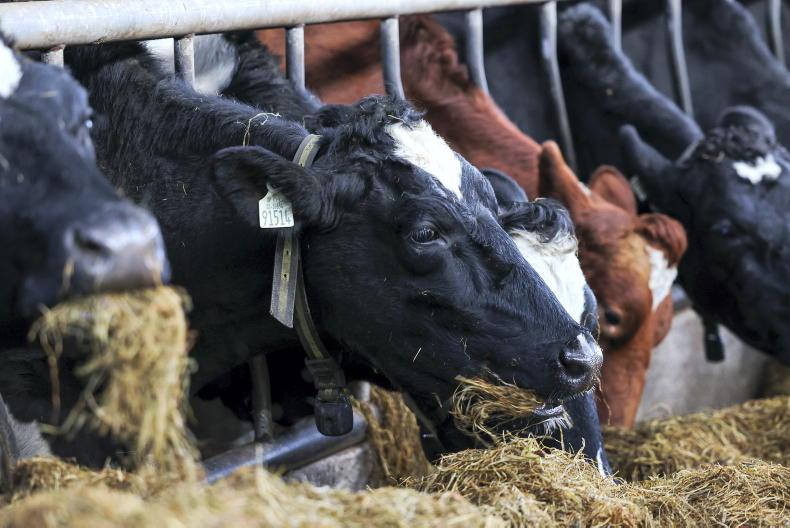
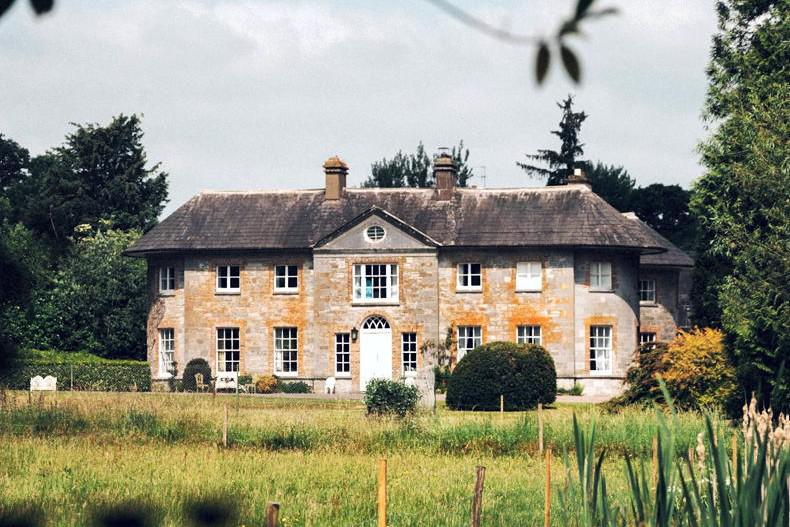
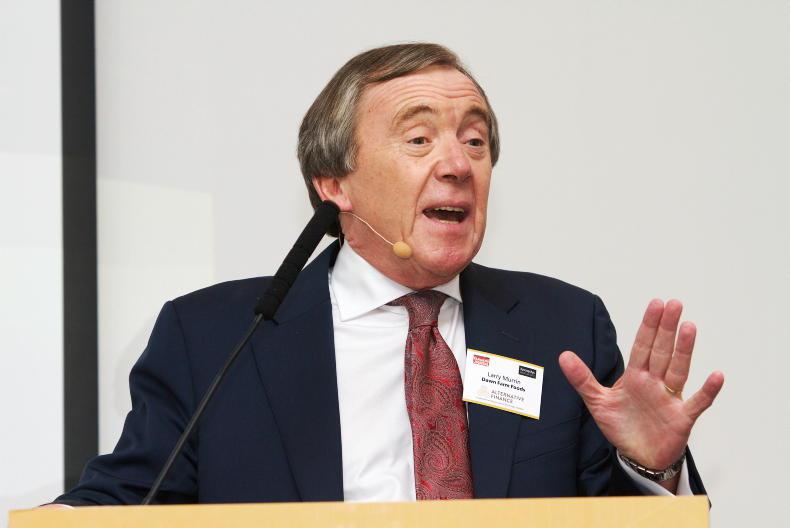
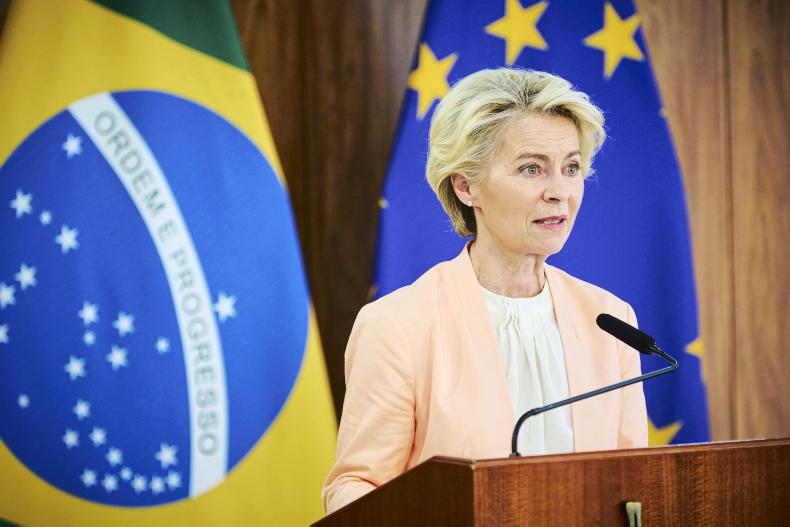
SHARING OPTIONS